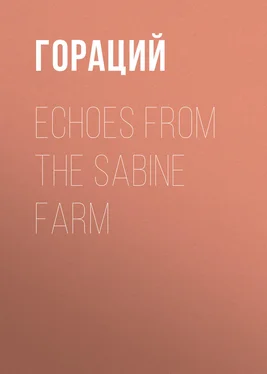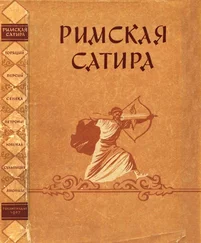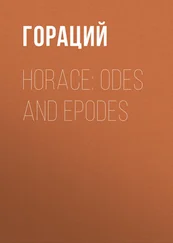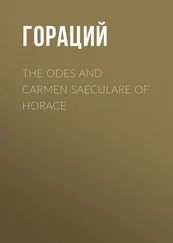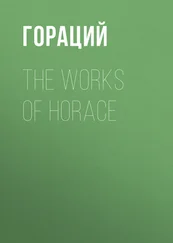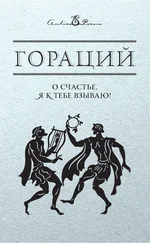Квинт Гораций Флакк - Echoes from the Sabine Farm
Здесь есть возможность читать онлайн «Квинт Гораций Флакк - Echoes from the Sabine Farm» — ознакомительный отрывок электронной книги совершенно бесплатно, а после прочтения отрывка купить полную версию. В некоторых случаях можно слушать аудио, скачать через торрент в формате fb2 и присутствует краткое содержание. Жанр: foreign_prose, foreign_antique, на английском языке. Описание произведения, (предисловие) а так же отзывы посетителей доступны на портале библиотеки ЛибКат.
- Название:Echoes from the Sabine Farm
- Автор:
- Жанр:
- Год:неизвестен
- ISBN:нет данных
- Рейтинг книги:3 / 5. Голосов: 1
-
Избранное:Добавить в избранное
- Отзывы:
-
Ваша оценка:
- 60
- 1
- 2
- 3
- 4
- 5
Echoes from the Sabine Farm: краткое содержание, описание и аннотация
Предлагаем к чтению аннотацию, описание, краткое содержание или предисловие (зависит от того, что написал сам автор книги «Echoes from the Sabine Farm»). Если вы не нашли необходимую информацию о книге — напишите в комментариях, мы постараемся отыскать её.
Echoes from the Sabine Farm — читать онлайн ознакомительный отрывок
Ниже представлен текст книги, разбитый по страницам. Система сохранения места последней прочитанной страницы, позволяет с удобством читать онлайн бесплатно книгу «Echoes from the Sabine Farm», без необходимости каждый раз заново искать на чём Вы остановились. Поставьте закладку, и сможете в любой момент перейти на страницу, на которой закончили чтение.
Интервал:
Закладка:
Horace
Echoes from the Sabine Farm
INTRODUCTION
One Sunday evening in the winter of 1890 Eugene Field and the writer were walking in Lake View, Chicago, on their way to visit the library of a common friend, when the subject of publishing a book for Field came up for discussion.
The Little Book of Western Verse and The Little Book of Profitable Tales had been privately printed the year before at Chicago, and Field had been frequently reminded that the writer was ready and willing to stand sponsor for any new volume he, Field, might desire to bring out.
"The only thing I have on hand that might make a book," said Field, "are some few paraphrases of the Odes of Horace which my brother, 'Rose,' and I have been fooling over, and which, truth to tell, are certainly freely rendered. There are not enough of them, but we'll do some more, and I'll add a brief Life of Horace as a preface or introduction."
It is to be regretted that Field never carried out his intention with respect to this last, for he had given much thought and study to the great Roman satirist, and what Eugene Field could have said upon the subject must have been of interest. It is my belief that as he thought upon the matter it grew too great for him to handle within the space he had at first determined, and that tucked away within the recesses of his literary intentions was the determination, nullified by his early death, to write, con amore , a life of Quintus Horatius Flaccus.
This determination to write separately an extended account of Horace greatly reduced the bulk of the material intended for the Sabine Echoes, and it was with respect to this that Field apologetically and, as was his wont, humorously wrote:
"The volume may be rather thin in corpore , but think how hefty it will be intellectually."
When it came to the discussion of how many copies should be printed it was suggested that the edition be an exceedingly limited one, in order to cause as much scrambling and heartburning as possible among our bibliophilic brethren. And never shall I forget the seriousness of the man's face, nor the roars of laughter that followed, when he suggested that fifty copies only should be made, and that we should reserve one each and burn the other forty-eight!
It was a biting cold night and we had been loitering by the way, stopping to debate each point as it arose—but now we plunged on with excess of motion to keep ourselves warm, breaking out with occasional peals of laughter as we thought of our plan to make the publication what the booksellers call "excessively rare."
Field, elsewhere, has said he did not know why the original intention as to the destruction of the forty-eight copies was not carried out, but the answer is not far away. As the time for publication approached it was found impossible that such and such a friend should be forgotten in the matter of a copy, and so it went on until it was deemed prudent to add fifty to the number originally intended to be issued, and that decision, in the light of what followed, proved to be an eminently wise one. More than once some to me unknown friend of Field would write a pleasant lie as a reason to gain possession of the book, and up in a corner of the letter would be found an endorsement of the request after this fashion:
What's writ below
I'd have you know
Nor falsehood nor romance is;
It's solemn truth,
So grant the youth
The boon he seeks, dear Francis.
It is perhaps unnecessary to add that, however flimsy the pretext upon which the request for a copy was made, it never failed of its object if it brought with it Field's endorsement. Among many pleasant utterances on this subject Field has said that but for the writer the Horatian verses would not have been given to the world—and this has been taken to mean more than was intended, and much unearned praise has been bestowed. But, in allusion to the original issue of the Odes, Field added, "in this charming guise," which places quite another construction upon the matter.
It may be that the enthusiasm displayed not only pleased Field, and incited him and his brother Roswell to perform that which, otherwise, might have been indefinitely deferred, but there is no question but that they intended to publish the Horatian odes at some time or another. Field was greatly delighted with the reception of this work, and I once heard him say it would outlive all his other books. He came naturally by his love of the classics. His father was a splendid scholar who obliged his sons to correspond with him in Latin. Field's favorite ode was the Bandusian Spring, the paraphrasing of which in the styles of the various writers of different periods gave him genuine joy and is perhaps the choice bit of the collection. The Echoes from the Sabine Farm was the most ambitious work Field had attempted up to the time of its issue. He was not at all sure that the public for whom he wrote, what following he then felt was his own, would accept his efforts in this direction with any sort of acclaim. Unquestionably, Field, at all times, believed in himself and in his power ultimately to make a name, as every man must who achieves success, but he was as far from believing that the public would accept him as an interpreter of Horatian odes as was Edward Fitzgerald with respect to Omar Khayyám. In short, he looked upon his work in the original publication of Echoes from the Sabine Farm as a labor of love—an effort from which some reputation might come, but certainly no monetary remuneration. It was because he so regarded it that he permitted the work to be first issued under the bolstering influence of a patron. It was, so he thought, an excellent opportunity to show his friends and acquaintances that his Pegasus was capable of soaring to classic heights, and he little dreamed that the paraphrasing of the Odes of Horace over which "Rose and I have been fooling" would be required for a popular edition. With the announcement of the Scribner edition of The Sabine Echoes came also the intelligence of Field's death.
I have found people who were somewhat puzzled as to the exact intentions of the Fields with respect to these translations and paraphrases. However, there can be no chance for mistake even to the veriest embryonic reader of Horace, if he will but remember that, while some of these transcriptions are indeed very faithful reproductions or adaptations of the original, others again are to be accepted as the very riot of burlesque verse-making.
The last stanza in the epilogue of this book reads:
Or if we part to meet no more
This side the misty Stygian river,
Be sure of this: On yonder shore
Sweet cheer awaiteth such as we—
A Sabine pagan's heaven, O friend—
And fellowship that knows no end.
January 22, 1896.
TO M.L. GRAY
Come, dear old friend, and with us twain
To calm Digentian groves repair;
The turtle coos his sweet refrain
And posies are a-blooming there;
And there the romping Sabine girls
Bind myrtle in their lustrous curls.
I know a certain ilex-tree
Whence leaps a fountain cool and clear.
Its voices summon you and me;
Come, let us haste to share its cheer!
Methinks the rapturous song it sings
Should woo our thoughts from mortal things.
But, good old friend, I charge thee well,
Watch thou my brother all the while,
Lest some fair Lydia cast her spell
Round him unschooled in female guile.
Those damsels have no charms for me;
Guard thou that brother,—I'll guard thee!
And, lo, sweet friend! behold this cup,
Round which the garlands intertwine;
With Massic it is foaming up,
And we would drink to thee and thine.
And of the draught thou shalt partake,
Who lov'st us for our father's sake.
Hark you! from yonder Sabine farm
Echo the songs of long ago,
With power to soothe and grace to charm
What ills humanity may know;
With that sweet music in the air,
'T is Love and Summer everywhere.
So, though no grief consumes our lot
(Since all our lives have been discreet),
Come, in this consecrated spot,
Let's see if pagan cheer be sweet.
Now, then, the songs; but, first, more wine.
The gods be with you, friends of mine!
Интервал:
Закладка:
Похожие книги на «Echoes from the Sabine Farm»
Представляем Вашему вниманию похожие книги на «Echoes from the Sabine Farm» списком для выбора. Мы отобрали схожую по названию и смыслу литературу в надежде предоставить читателям больше вариантов отыскать новые, интересные, ещё непрочитанные произведения.
Обсуждение, отзывы о книге «Echoes from the Sabine Farm» и просто собственные мнения читателей. Оставьте ваши комментарии, напишите, что Вы думаете о произведении, его смысле или главных героях. Укажите что конкретно понравилось, а что нет, и почему Вы так считаете.
